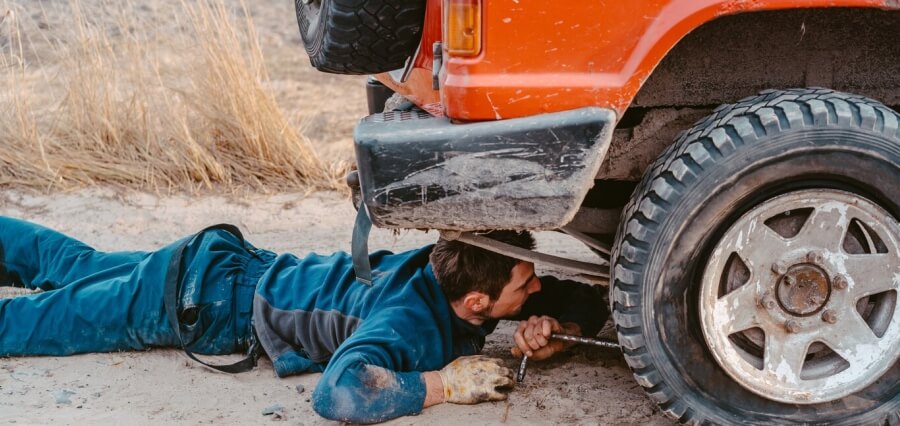In 2022, a staggering 32% of nationwide truck accidents led to injuries, equating to 54,172 incidents out of 166,833. Texas, a state in focus, witnessed 38,621 commercial vehicle crashes in the same year. These stats hold true for most areas in Texas, such as Richmond.
These numbers aren’t just statistics; they represent lives disrupted and communities affected. But what if you find yourself or a loved one injured in a truck accident? These shocking statistics underscore the urgent need for preparedness, especially in regions like Richmond, Texas, where commercial vehicle crashes are in thousands annually.
Responsibility in Truck Accidents
In cases of truck accidents, liability refers to the accountability for the incident. Identifying who is at fault is essential for seeking compensation for injuries and losses suffered by those involved. It’s worth noting that liability can be shared among parties.
Parties in Truck Accidents
Truck Driver
Often, the truck driver carries some or all of the responsibility in a truck accident. Factors like rash driving, fatigue, speeding, or driving while impaired can contribute to driver negligence.
Trucking Company
The company that employs the driver may also share liability under certain circumstances. If they failed to follow safety regulations, set delivery deadlines, or pushed drivers into breaking traffic laws, they could be considered accountable.
Manufacturer of the Vehicle
If an issue with the machinery or a defective component led to the accident, the manufacturer could be held accountable for any resulting harm. Examples of this include brake malfunctions or tire blowouts caused by flaws in production.
Maintenance Providers
Companies in charge of upkeeping and servicing trucks may also face liability if their carelessness contributed to an accident (for instance, inadequate repairs or employees neglecting maintenance checks).
Shippers/Loaders
Incorrectly loading cargo can result in accidents if it destabilizes the vehicle. In such situations, those responsible for loading the cargo could be held liable if it leads to an accident on the road.
Establishing Liability
In proving liability in a truck accident case, evidence plays a role. Let’s delve into some pieces of evidence that can aid in determining liability:
Witness Testimonies
Accounts from eyewitnesses are valuable in substantiating claims and offering perspectives of the accident.
Police Reports
Official reports on accidents prepared by law enforcement agencies contain details such as statements from parties, any traffic violations committed, and forensic evidence.
Trucking Records
Reviewing logs, trip records, maintenance files, and other pertinent documents helps assess the conduct of the truck driver before the accident.
- Electronic Logging Devices (ELDs): These gadgets capture information, like the speed of the vehicle, hours of operation, and sudden braking incidents. The data collected by ELDs can offer insights into the events leading up to an accident.
- Surveillance Footage: If accessible, video recordings from traffic cameras or nearby buildings can provide evidence of how the accident unfolded and any interactions with other drivers or pedestrians.
Role of Negligence Laws in Determining Liability
Contributory negligence is a principle that could influence liability determinations in regions. It implies that if a victim is deemed responsible for an accident due to their actions or oversights before it occurred (like lane changes or distracted driving), their compensation might be reduced accordingly.
Significance of Legal Support
Given the complexities involved in establishing liability and handling insurance matters after a truck accident, seeking legal counsel becomes essential for those affected. Experienced attorneys specializing in injury law can assist victims in navigating the system while safeguarding their rights.
Factors Affecting Truck Accident Liability
Various factors may impact how liability is determined in truck accidents. It’s important to take into account these factors that can impact seeking compensation or defending against accusations.
Road Conditions
When road conditions are poor, like having uneven surfaces or insufficient signage, they can lead to accidents. In such situations, blame for the accident might be partly assigned to the government agencies for not maintaining the roads.
Third-Party Negligence
At times, the negligence or reckless actions of another driver on the road can significantly contribute to a truck accident. If there is evidence showing that a party’s behavior played a role in causing the crash, their responsibility could be questioned.
Conclusion
Truck accidents require investigation to determine liability accurately. The involvement of parties makes these cases more complex. Understanding the liabilities that truck drivers, trucking companies, manufacturers, maintenance providers, and cargo loaders may face is crucial for pursuing compensation. By collecting evidence and promptly seeking advice, victims can ensure they get the necessary support during this difficult period.


